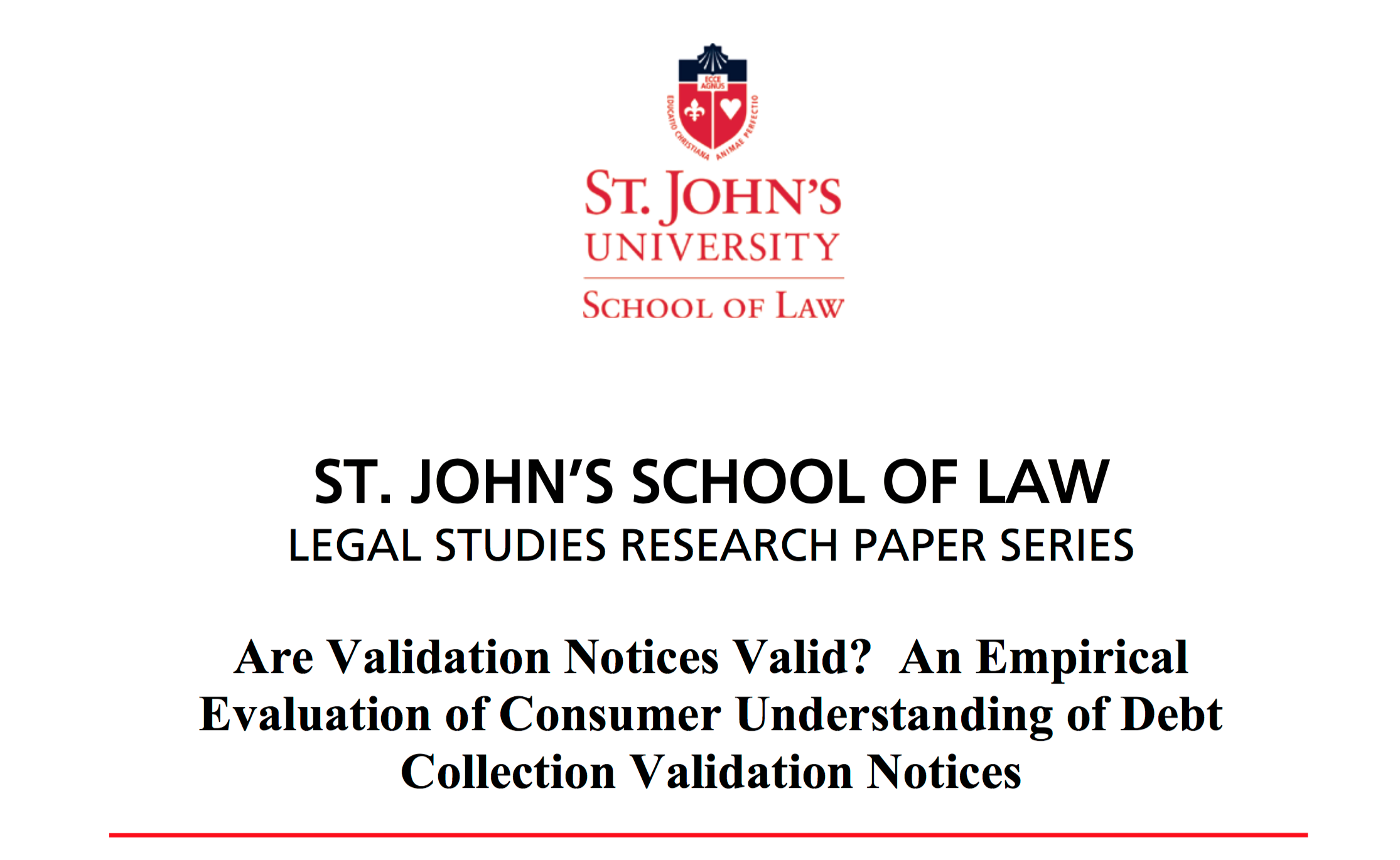A pair of professors from St. John’s University have a number of suggestions about how validation notices can be made more effective, based on the results of a study they conducted analyzing how individuals read and understood the language of the letters.
Many of the recommendations are made to the Consumer Financial Protection Bureau as it contemplates its proposed debt collection rule. Those recommendations are:
- The Bureau should explore additional ways for collectors to convey to consumers their validation rights.
- The Bureau should consider limiting the number of words and content of messages in collection letters that include validation notices.
- The Bureau should eliminate statements about when the collector will assume the debt to be valid.
- The Bureau should direct collectors to treat oral verification demands as if they were in writing.
- The Bureau should consider stating in the validation notice that missing the deadline will not affect the consumer’s rights.
- The Bureau should consider creating and requiring a model validation notice.
- Courts should consider requiring collectors to demonstrate that consumers take in and understand their validation rights.
- The Bureau should consider requiring collectors to provide some information about debts even if consumers don’t request verification.
Validation notices are a requirement under the Fair Debt Collection Practices Act and must include language that instructs how consumers can dispute a debt and what happens if they do not. There is no universal standard that collection agencies must follow, but there are some validation notice disclosures that have held up in the higher courts, and those are considered to be safe for anyone to use.
The case of Zemeckis v. Global Credit Collection Corp., which has been to the Seventh Circuit Court of Appeals, is what the researchers used as the benchmark validation notice in their study.
The researchers created different versions of validation notices, and had individuals read the notices and then answer questions based on what they read.
Our survey of consumers raises serious questions about the effectiveness of the validation notice the Seventh Circuit approved in Zemeckis. On most questions, respondents did not show statistically significantly better understanding of the Zemeckis letter than on a letter without any validation notice at all. More than half the Zemeckis letter respondents seemed confused by the phrasing about the assumption of validity. About a quarter did not realize they could request verification of the debt, and nearly all who did so realize also thought that an oral request for verification was sufficient even though both the statute and notice specify that a writing is required. If the Zemeckis notice were measured by the FTC’s standards for finding deception in surveys, it would be found deceptive.
Many consumers are getting tripped up by the language in the notice that says if an individual does not dispute a debt within 30 days, the debt will be deemed valid.









